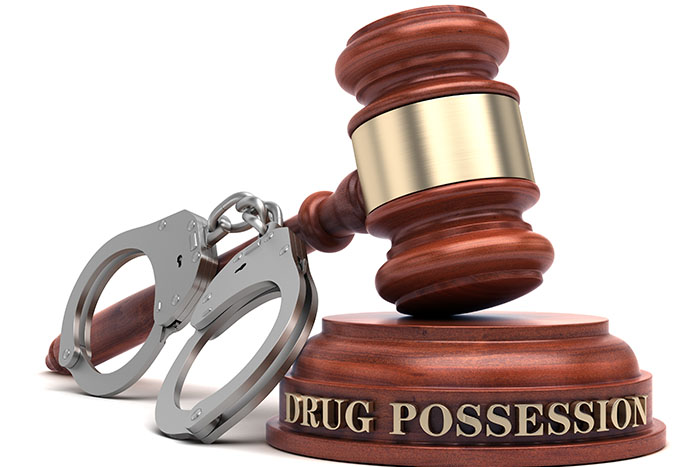Statistically speaking, if you are a Texas resident, you own firearms, and if you are now facing misdemeanor drug charges, you may have your Second Amendment rights stripped from you. Federally speaking, you cannot have a firearm if you have a misdemeanor charge on your record. However, depending on the state, some things are enforced more strictly than others. With the right attorney by your side, you can begin to work to restore your rights and protect your freedoms. At Underwood & Associates, our drug crimes lawyers represent clients accused of all different types of drug offenses. Contact us today so that we can start defending your Second Amendment rights.
Federal Gun Control Act (GCA)
After the assassination of President John F. Kennedy, the federal government passed the Gun Control Act of 1968, which regulates the firearm industry and who owns it. The GCA limits those who can own and purchase firearms.
A few of those limitations are anyone who:
- Is under indictment or convicted of a crime
- Is a fugitive from justice
- is addicted to marijuana or drugs
- cannot pass a background check
At this federal level, a misdemeanor drug charge can undoubtedly affect your gun rights. While there are opportunities to have your Second Amendment rights restored, it’s not guaranteed and often needs to be appealed with an experienced attorney by your side. The legal guidance that an attorney can provide is crucial to restoring your rights. They can provide individualized legal counsel based on the specific circumstances, your jurisdiction, and the charges you face.
State-Specific Laws and Regulations
While federal law establishes a standard regarding someone’s eligibility to own a firearm, Texas state laws are generally weaker and have significant gaps in their enforcement. Understanding the difference between a drug charge and a conviction is essential.
If you are facing a drug charge, you may still be able to purchase a firearm, but any conviction will show up in your background check and might prevent you from purchasing a firearm. Texas still maintains an almost zero tolerance for marijuana, but they have a small medical marijuana program. During the background check, you may state that you are not addicted to any substances; however, if you have a medical marijuana card, you could potentially be denied the sale.
Purchasing a firearm while facing a drug charge is different than after a conviction. An experienced attorney can help guide you through your legal options.
Understanding the Implications of a Drug Conviction
Controlled substances are highly regulated in Texas, and if you are convicted of a drug crime, the penalties you face are directly related to the substance and the amount.
Typical drug penalties in Texas are:
- Class C misdemeanor: Fines up to $500
- Class B misdemeanor: Jail up to 180 days and/or fines up to $2,000
- Class A misdemeanor: Jail up to 1 year and/or fines up to $4,000
First-time offenses, or marijuana possession under 2 ounces, may face a more lenient punishment, and any conviction or charge with a jail time under 2 years means that you can work towards restoring your Second Amendment rights.
Being arrested and convicted of possessing an illegal substance carries penalties that are potentially life-altering. With these far-reaching consequences, working with an experienced criminal defense attorney with the knowledge and experience to fight for your rights is vital.
Felony Drug Charges and Their Implications
Felony drug charges come with hefty fines and prison time, but they vary based on the amount, substance, or even the intent to distribute or sell. The different groups and penalties you can potentially face create an extremely complex legal landscape best navigated with an experienced attorney.
Typical felony drug penalties fall under these categories:
- State Jail Felony: Jail up to 2 years and/or fines up to $10,000
- 3rd Degree Felony: Federal prison sentence up to 10 years and/or fines up to $10,000
- 2nd Degree Felony: Federal prison sentence up to 20 years and/or fines up to $10,000
- 1st Degree Felony: Federal prison sentence of up to 99 years and/or fines up to $250,000
Under Texas Law, it is illegal for anyone who has been convicted of a felony offense to possess a firearm within five years of their release from jail, parole, or even probation. After that five-year period is over, they may possess a weapon at home if they can pass the federal background check, but they may not carry it in public. Any violation of these laws has additional severe criminal consequences. You must understand and comply with these laws to protect your Second Amendment rights and work towards restoration.
Seeking Legal Counsel: Protecting Your Rights
Texas has unique laws regarding gun rights after misdemeanor and even felony charges, and a Texas criminal defense attorney can explain what impact they have on your right to own a firearm. Drug charges and convictions can alter your life in ways that are unexpected and can span for years after your initial conviction, which is why it’s important to have the right legal counsel to help guide you in your rights. Contact us today at Underwood & Associates to help you fight against your charges and protect your rights.




